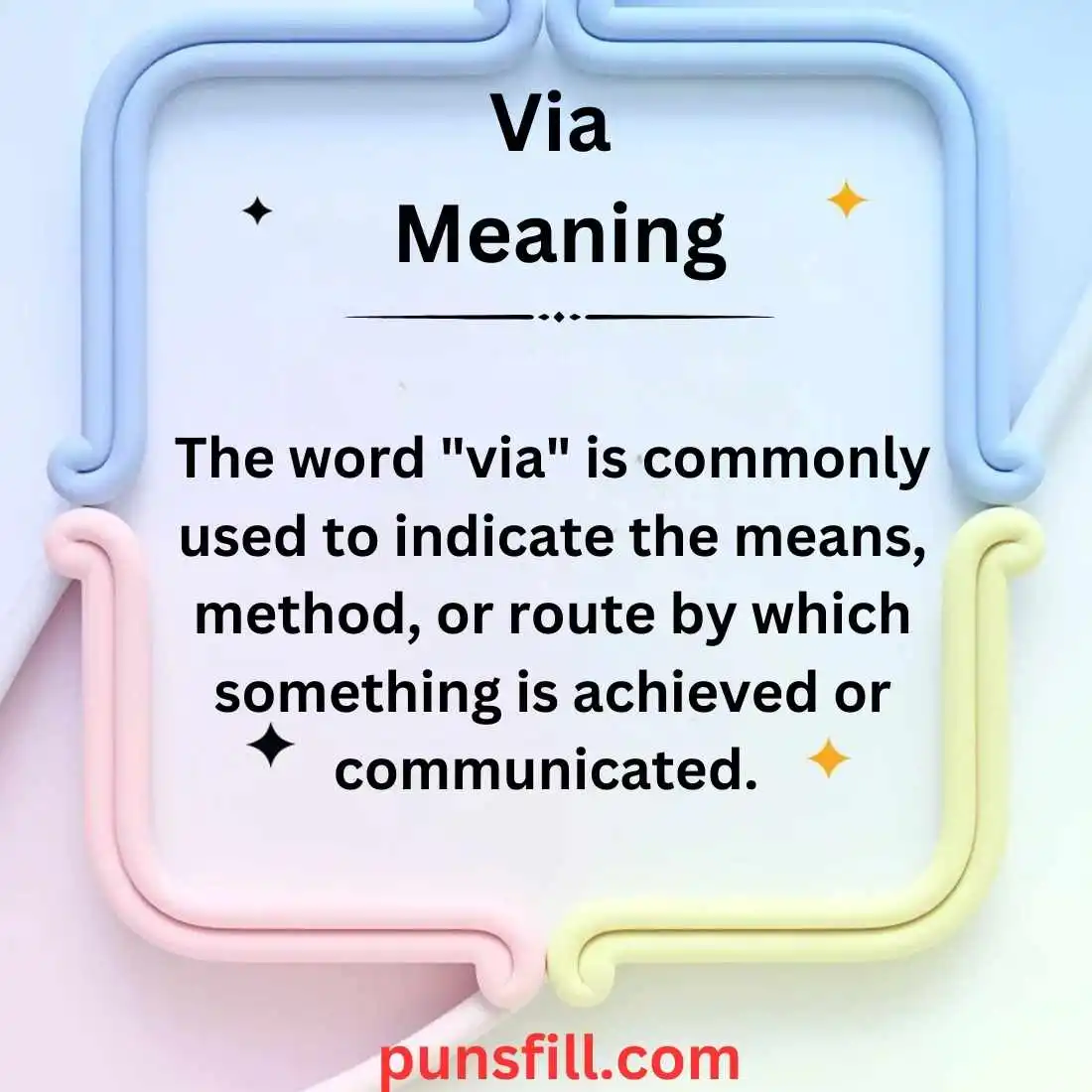Last Updated on February 16, 2025 by Ethan Richards
The word “via” is commonly used to indicate the means, method, or route by which something is achieved or communicated.
While it is widely accepted in both written and spoken English, alternatives may be more suitable depending on the context.
This article explores different polite, professional, and casual alternatives to “via,” providing examples and guidance on selecting the best option based on tone and situation.
What Does “Via” Mean?
“Via” is a Latin-derived preposition meaning “by way of” or “through.” It is often used in different contexts such as travel, communication, and technology. Here are a few examples:
- Travel: “We traveled to Italy via Paris.”
- Communication: “I sent the document via email.”
- Technology: “Access the website via your browser.”
Although “via” is a useful word, other alternatives can enhance clarity, professionalism, or casualness depending on the context.
Professional Alternatives to “Via”
In formal settings, alternative words or phrases can help maintain professionalism and clarity. Here are a few:
Through
- Example: “The request was processed through official channels.”
- Suitable for: Business, corporate, legal, and formal communication.
By Means Of
- Example: “The project was completed by means of collaborative efforts.”
- Suitable for: Academic writing, reports, and formal presentations.
Using
- Example: “You can submit your application using our online portal.”
- Suitable for: Technical instructions, work-related documents, and IT-related communication.
By Way Of
- Example: “The company reached an agreement by way of negotiation.”
- Suitable for: Legal documents and business discussions.
Per
- Example: “Per your request, we have sent the invoice via email.”
- Suitable for: Formal business emails and legal documentation.
Polite and Diplomatic Alternatives to “Via”
When you want to sound more polite or diplomatic, consider the following phrases:
Through the Use Of
- Example: “The survey was conducted through the use of advanced analytics.”
- Suitable for: Academic, business, and policy discussions.
Facilitated By
- Example: “The meeting was arranged, facilitated by our executive team.”
- Suitable for: Diplomatic conversations and professional settings.
As a Means Of
- Example: “The software was implemented as a means of improving efficiency.”
- Suitable for: Strategic discussions and business meetings.
With the Help Of
- Example: “The issue was resolved with the help of our IT department.”
- Suitable for: Customer service, teamwork, and professional cooperation.
By Way Of Communication
- Example: “We provided feedback by way of an official statement.”
- Suitable for: Formal correspondence and public relations.
Casual and Conversational Alternatives to “Via”
For everyday communication, you may want to use friendlier and more natural expressions.
Through
- Example: “I heard about it through a friend.”
- Suitable for: Informal conversations, storytelling, and casual discussions.
Over
- Example: “Let’s discuss this over the phone.”
- Suitable for: Informal chats, friendly business settings, and personal conversations.
With
- Example: “I sent you the files with an email.”
- Suitable for: Informal messaging and general conversations.
Via Text
- Example: “I’ll send you the details via text.”
- Suitable for: Casual and digital communication.
Sent Through
- Example: “I sent the payment through PayPal.”
- Suitable for: Online transactions and everyday usage.
How to Choose the Best Alternative
Selecting the right word depends on:
- Formality: Use “by means of” or “per” for formal contexts, while “through” or “with” work for casual conversations.
- Clarity: In technical or legal writing, precise terms like “facilitated by” or “as a means of” are ideal.
- Tone: Use friendly alternatives like “over” or “sent through” in everyday speech or casual writing.
Texting Examples for Everyday Use
Here are some user-friendly examples optimized for Google and practical usage:
- Formal: “I’ll share the report through email.”
- Professional: “Please submit your request by means of the company portal.”
- Polite: “We’ll communicate through the use of our internal messaging system.”
- Friendly: “Let’s talk over coffee tomorrow.”
- Casual: “I’ll send you the pics via text.”
- Everyday: “I heard about the party through Sarah.”
- Digital: “You can access the document through Google Drive.”
- Work-related: “We coordinated the project by way of Slack.”
- Social: “I got the invitation with an email.”
- Informal: “I’ll call you through WhatsApp.”
Conclusion
While “via” is a widely accepted term, knowing its alternatives allows for more flexibility and precision in communication.
Whether in a formal, professional, or casual setting, choosing the right phrase enhances clarity, appropriateness, and tone.
By understanding these variations, you can better tailor your messages to suit any context.

Matthew Porter combines his passion for theology with an extensive study of dreams. His analytical approach and eloquent writing style make complex interpretations accessible, helping readers uncover the hidden messages in their dreams and connect with their spiritual path.










